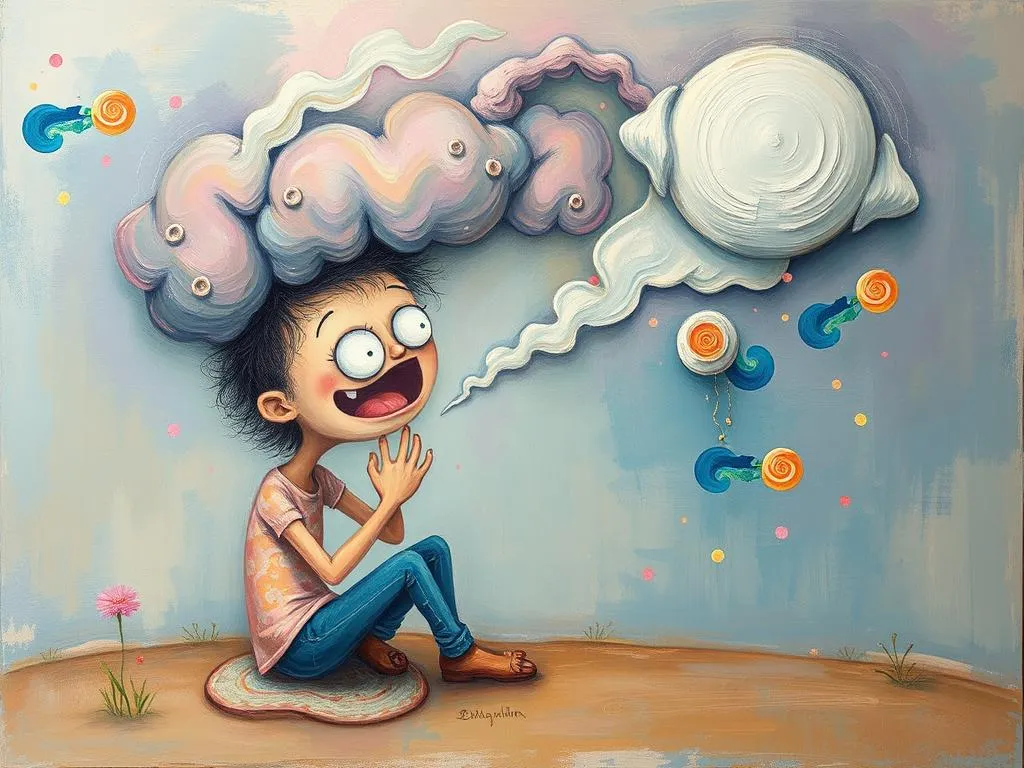
Introduction
Dreams have long been a source of fascination and intrigue, acting as windows into our subconscious mind. Among the myriad of dream experiences, those characterized by feelings of anxiety resonate deeply with many individuals. These dreams often provoke a sense of unease, leaving dreamers questioning their significance and relevance to their waking lives. The exploration of anxiety in dreams is particularly compelling, as it reflects our emotional states, fears, and the challenges we face in our daily existence. Understanding these dreams can provide valuable insights into our inner selves, shedding light on our emotional landscape and prompting us toward personal growth.
Symbolism and Meaning
When we delve into the symbolism of dreams centered around anxiety, we uncover a rich tapestry of meanings that can vary greatly depending on the context of the dream. One prevalent symbol in such dreams is being chased. This scenario often indicates feelings of avoidance in waking life—perhaps there are unresolved issues or responsibilities that one is trying to escape. The pursuer in the dream can represent an aspect of oneself, such as guilt or fear, that demands attention.
Another common symbol is falling. This sensation can evoke profound fear and helplessness, often reflecting a lack of control in one’s life. Falling dreams can signify a fear of failure or insecurity about one’s path. Here, the emotion of anxiety manifests as a fear of losing stability, whether in personal relationships, career, or self-identity.
Public speaking or being unprepared for an important event is also a frequent theme in anxiety dreams. This scenario often points to feelings of inadequacy or fear of judgment from others. The dreamer may feel exposed or vulnerable, highlighting the pressure they feel in social situations or during significant life transitions.
From a psychological perspective, anxiety dreams may serve as a coping mechanism, allowing individuals to process their stressors during sleep. The emotions experienced in these dreams can act as a catalyst for self-awareness, leading to a deeper understanding of one’s fears and aspirations. Dreaming of anxiety can prompt the dreamer to confront underlying issues, making it a vital part of emotional health and personal growth.
Key Scenarios and Variations
The specific scenarios within anxiety dreams can significantly alter their meanings. For instance, dreaming of being lost in an unfamiliar place can symbolize feelings of confusion or lack of direction in one’s life. This dream often occurs during transitional phases, such as starting a new job or ending a relationship. The emotions tied to this dream scenario emphasize the need for clarity and purpose.
A variation of this theme could involve dreaming of being trapped or imprisoned. Such dreams can evoke intense feelings of helplessness and despair. They may reflect feelings of being constrained by external circumstances or internal fears. This scenario often encourages the dreamer to explore what aspects of their life feel restrictive and to seek avenues for liberation and empowerment.
Additionally, scenarios involving failure—such as missing an exam or forgetting important tasks—can be particularly anxiety-inducing. These dreams might serve as a manifestation of perfectionism or the fear of not meeting expectations, whether self-imposed or external. They can highlight the pressure one feels to succeed, urging the dreamer to consider their relationship with achievement and self-worth.
In contrast, dreams featuring supportive figures during anxious scenarios can provide comfort and reassurance. For example, dreaming of a loved one offering guidance during a stressful situation can reflect a desire for connection and support in waking life. This variation emphasizes the importance of relationships and community in navigating periods of anxiety and uncertainty.
Real-Life Connections and Takeaways
The connection between anxiety dreams and real-life experiences is profound. These dreams often serve as reflections of our daily worries, fears, and emotional struggles. Recognizing the themes and symbols in these dreams can offer valuable insights into our waking lives, prompting us to take a closer look at our mental and emotional health.
One practical takeaway is the opportunity for self-reflection. Keeping a dream journal can be an effective tool for processing anxiety dreams. By documenting the details of the dream, the emotions felt, and any recurring themes, individuals can begin to identify patterns that may correlate with their waking life. This practice encourages deeper introspection and can illuminate areas that require attention or change.
Another valuable insight is the importance of communication. If a dream reveals feelings of inadequacy or fear of judgment, it may be time to address these feelings in relationships. Engaging in open conversations with friends or loved ones can help alleviate anxiety and foster a sense of connection and support.
Moreover, developing healthy coping mechanisms for managing anxiety can significantly impact how these dreams manifest. Techniques such as mindfulness, meditation, and grounding exercises can help individuals navigate their emotional landscape more effectively. By integrating these practices into daily routines, it becomes easier to confront and manage the anxieties that surface in dreams.
Lastly, embracing the notion that anxiety dreams can be a pathway to personal growth is essential. Rather than pushing these dreams aside as mere disturbances, viewing them as opportunities for self-discovery can empower individuals to confront their fears. Each dream offers a unique glimpse into the self, urging the dreamer to explore the underlying emotions and experiences that shape their waking life.
In summary, dreams about being anxious are not just fleeting nocturnal experiences; they are profound emotional explorations that can offer significant insights into our lives. By examining the symbols, scenarios, and real-life connections associated with these dreams, individuals can embark on a journey of self-reflection and emotional growth. Embracing these dreams as opportunities for understanding and healing can lead to a more profound awareness of one’s inner world and ultimately promote a sense of peace and well-being.







